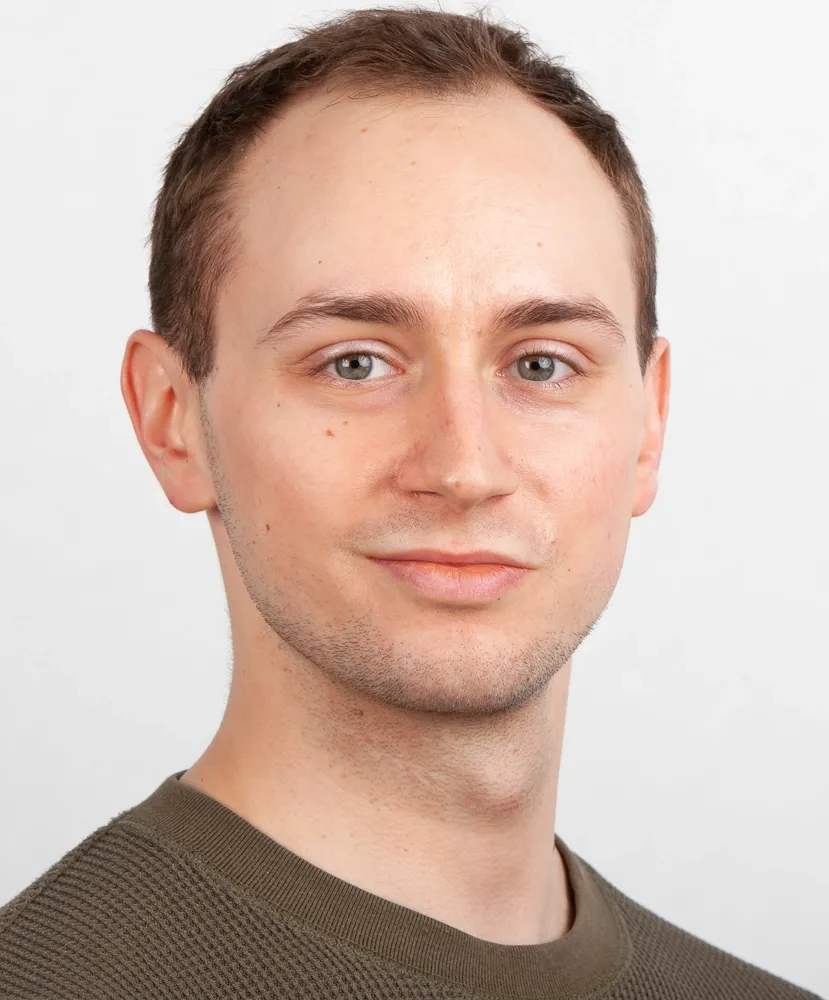Toxicology alumnus Mihai-Ovidiu is passionate about developing alternative methods to predict chemical toxicity
Name: Mihai-Ovidiu Degeratu
Based: Dübendorf, Switzerland
Year of graduation: 2022
Current role: PhD student at the Department of Environmental Toxicology at the Swiss Federal Institute of Aquatic Science and Technology

What did you study as an undergraduate (bachelor)?
For my Bachelor's degree, I studied Forensic Science at the University of West London in the UK. I chose the programme because it offered many hands-on lab classes, especially in molecular biology and biochemistry, which I really enjoyed. Of course, the idea of applying science to 'solve crimes' was also appealing. One of my favourite courses was pharmacology, which led me to choose a thesis topic that was not traditionally forensic: a literature review on the use of cell line-based methods as platforms for toxicity testing in pharmaceutical drug development.
Why did you choose the Master programme in Toxicology?
During my undergraduate studies, I developed a strong interest in how chemical substances interact with biological systems. Moreover, my bachelor’s thesis sparked my curiosity about toxicity testing models and related topics such as the 3Rs principle (reduce, replace, and refine). This motivated me to continue exploring these areas, and the ToxMaster programme felt like the right fit. The university’s strong research environment and internationally recognized reputation also played a significant role in my decision to apply.
Where did you conduct your MSc thesis and what was it about?
I conducted my MSc thesis in Associate Professor, Docent Kristiina Tammimies’ research group at the Center of Neurodevelopmental Disorders at Karolinska Institutet, located in BioClinicum. My thesis focused on studying how antidepressant drugs affect differentiating human neuroepithelial stem cells, as a cell line-based model of human neurodevelopment, at the molecular and cellular levels. This work was part of a larger project aimed at understanding the risk factors associated with neurodevelopmental conditions, particularly autism spectrum disorder, during pregnancy. What I really appreciated about this project was how it reinforced a key concept often discussed during the ToxMaster programme: chemical stressors can induce molecular and cellular changes that directly impact the overall health and function of an organism.
Looking back on your time at KI and the Master programme in Toxicology, what is the most valuable thing that you learned?
Teamwork and clear communication were among the most valuable skills I developed during the ToxMaster programme, particularly through the numerous group assignments we completed. These skills are especially important in a multidisciplinary field like toxicology, which has broad applications ranging from academic research to policy-making and industry practices. Collaboration among experts from diverse professional backgrounds is vital in this context.
Where are you and what are you doing now?
I am a PhD student at the Department of Environmental Toxicology at the Swiss Federal Institute of Aquatic Science and Technology (Eawag) in Dübendorf, Switzerland. My research focuses on using fish-derived cell lines as alternative, animal-free methods to predict chemical toxicity. I employ mass spectrometry-based proteomics techniques to characterize these cell lines and to establish a panel of proteins that can serve as biomarkers of chemical toxicity.
What made you decide on this career?
I was eager to advance my knowledge in a field I am passionate about and contribute to it by exploring novel ideas. I also wanted to develop my academic career, and pursuing a PhD offered the perfect opportunity to achieve these goals.
